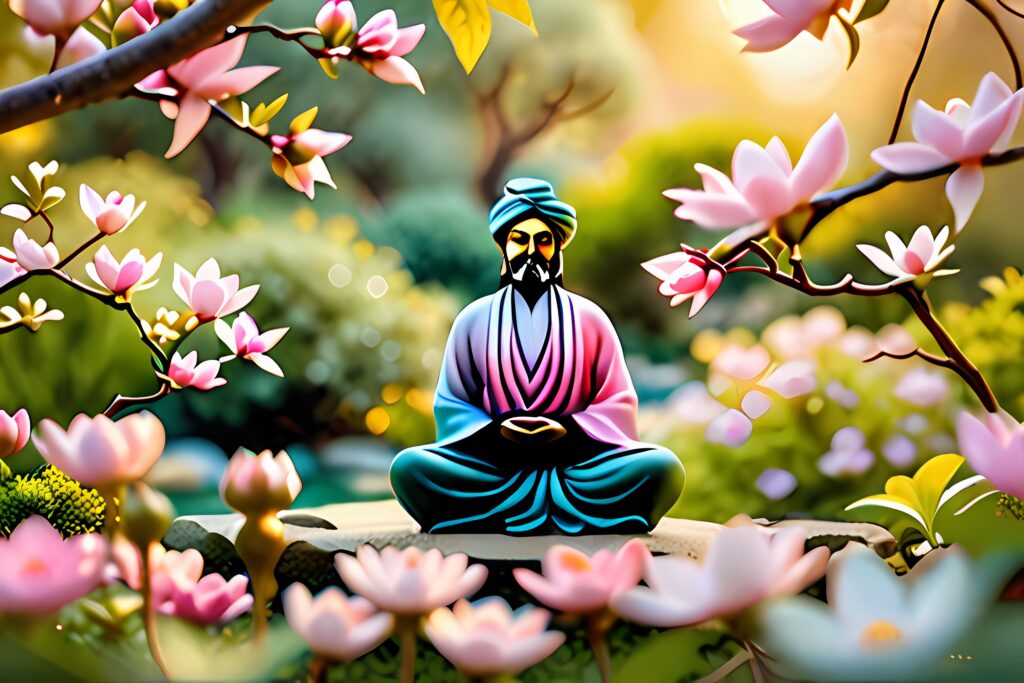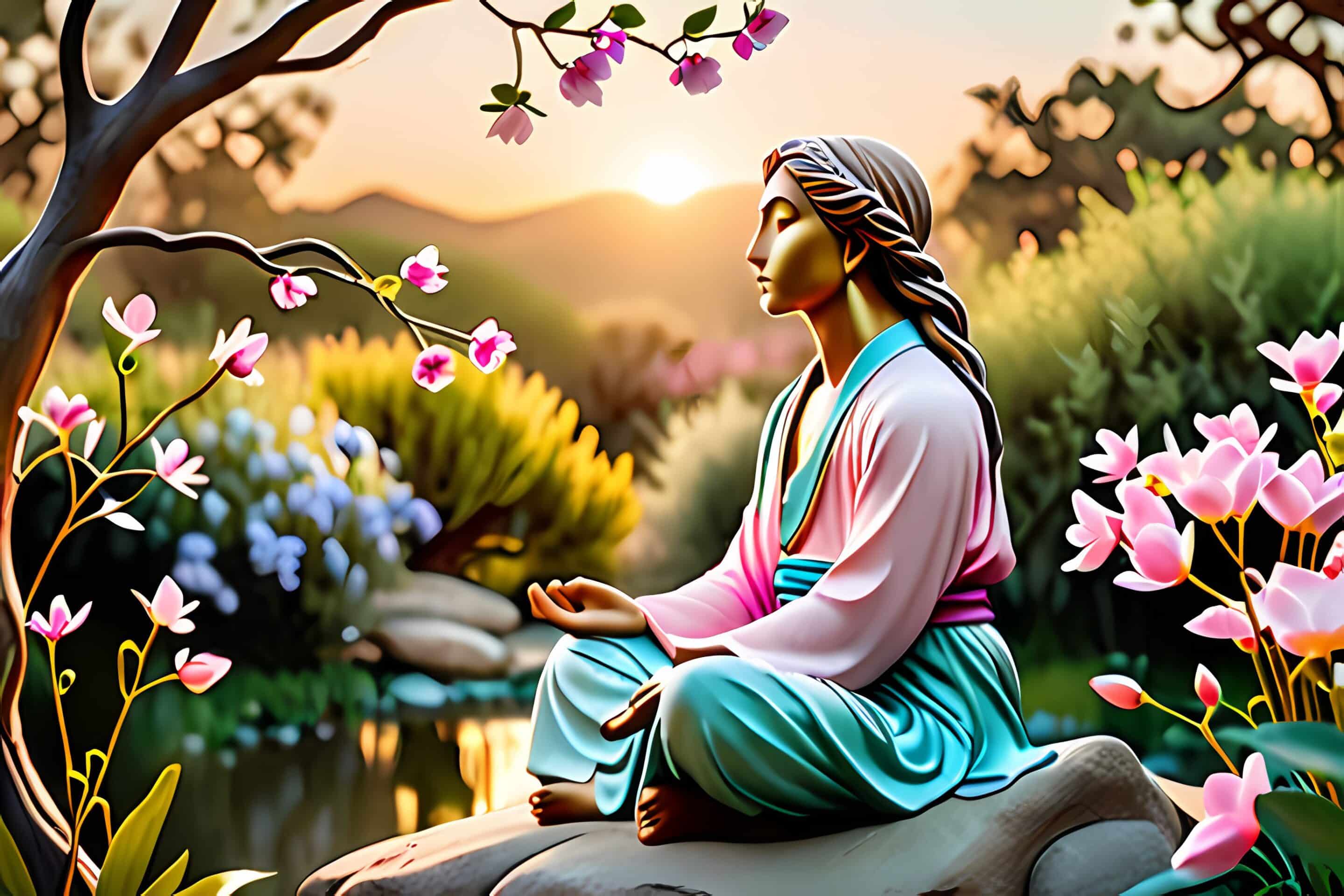Life is better when we’re happy. Happiness is a healthy emotion that helps us stay motivated. When we feel the opposite, our energy levels drop like a stone.
What if any of us could control happiness? If we can switch it on when needed, our lives improve. Ideas like this have existed for a long time. Here’s what one thirteenth-century philosopher had to say.
Discovering the Roots of Rumi’s Inspiration
Jalal ad-Din Muhammad Rumi, a 13th-century Persian poet, theologian, and Sufi mystic, has profoundly impacted the world with his enchanting words and deep spiritual insights. One of his most uplifting quotes, “Why should I be unhappy? Every parcel of my being is in full bloom,” emerges from his extensive work, which often explores themes of divine love, inner peace, and the beauty of the human spirit. Rumi’s writings were not just poetic; they were to evoke a sense of enlightenment and reflection about the universe and our place within it.

Rumi’s message in this quote is particularly captivating because it challenges us to reconsider our perspectives on happiness and self-awareness. His words encourage us to look within and recognize the inherent beauty and strength of simply being alive. This notion was central to Rumi’s teachings, which emphasized the beauty of every individual’s journey and its spiritual potential. Keep that in mind will help with understanding Rumi’s wisdom.
When we forget how incredible life is, we let our vibrancy slip. That’s when we need to refresh our perspective. A new view and mindset is the most powerful asset. When you undergo renewal, you can push past limitations. Set a course for some big goal and try!
Frequently Asked Questions About Rumi and His Teachings
Rumi’s poetry transcends time and culture, offering timeless wisdom on love, happiness, and the human condition. In modern times, his words resonate deeply for their ability to inspire self-reflection, encourage emotional and spiritual healing, and promote a greater understanding of life’s interconnectedness. His teachings can be a source of comfort and motivation in today’s fast-paced world.
Incorporating Rumi’s teachings into daily life involves embracing every moment with mindfulness and appreciation. This can be achieved through practices like meditation, journaling, or simply taking time to appreciate nature and the people around you. By recognizing the beauty and potential within, you can foster a more joyful and fulfilling life.
Rumi uses the metaphor of a blooming flower to describe a state where every aspect of a person’s being—emotional, intellectual, spiritual—is thriving and expressed fully. This state is one of complete self-actualization and happiness, where personal growth is embraced and celebrated.
Absolutely! Rumi’s teachings promote resilience and inner peace, which are crucial for coping with stress and adversity. By encouraging us to look inward and find strength in our spiritual and emotional cores, his insights can help us maintain balance and perspective in challenging times, leading to a more adaptive and positive approach to life’s obstacles.
The Vibrant Meaning Behind the Bloom
When Rumi speaks of every “parcel” of our being in “full bloom,” he uses the imagery of a flower at its peak of beauty to symbolize personal growth and flourishing. This metaphor is a powerful reminder of our potential to thrive, irrespective of external circumstances. It suggests that happiness comes from acknowledging and nurturing the richness of our inner selves—our thoughts, emotions, and spirit.

EMBRACE THE BLOOM
This perspective is particularly empowering because it shifts the focus from external sources of happiness to internal ones. In today’s fast-paced world, it’s easy to tie our happiness to external achievements or material possessions. However, Rumi’s words invite us to find joy in the essence of our being—every little part that makes us who we are. This approach fosters a more profound sense of self-acceptance and encourages us to engage more fully with the world, appreciating life’s beauty in all its forms.
Living Fully in Every Moment
To truly embrace Rumi’s philosophy, consider how to live more consciously and fully every day. That means observing our thoughts and feelings without judgment and welcoming all parts of our experiences with open arms. It’s about recognizing that even in moments of difficulty, something within us is vibrant and alive.
Practically, this can mean taking time to reflect on our day, practicing mindfulness, or simply pausing to appreciate the small joys—a morning coffee, a shared smile, or the comfort of a warm breeze. By acknowledging and celebrating the bloom within, we align more closely with Rumi’s vision of inner contentment and peace.
In essence, Rumi’s quote is a call to action—a reminder to cherish and activate the potential in each of us. It encourages joyful participation in the ups and downs of life, promoting a resilient, optimistic stance that can help us navigate the world with grace and vigor. Remember, every part of you can bloom beautifully, enriching not only your life but also the lives of those around you.





